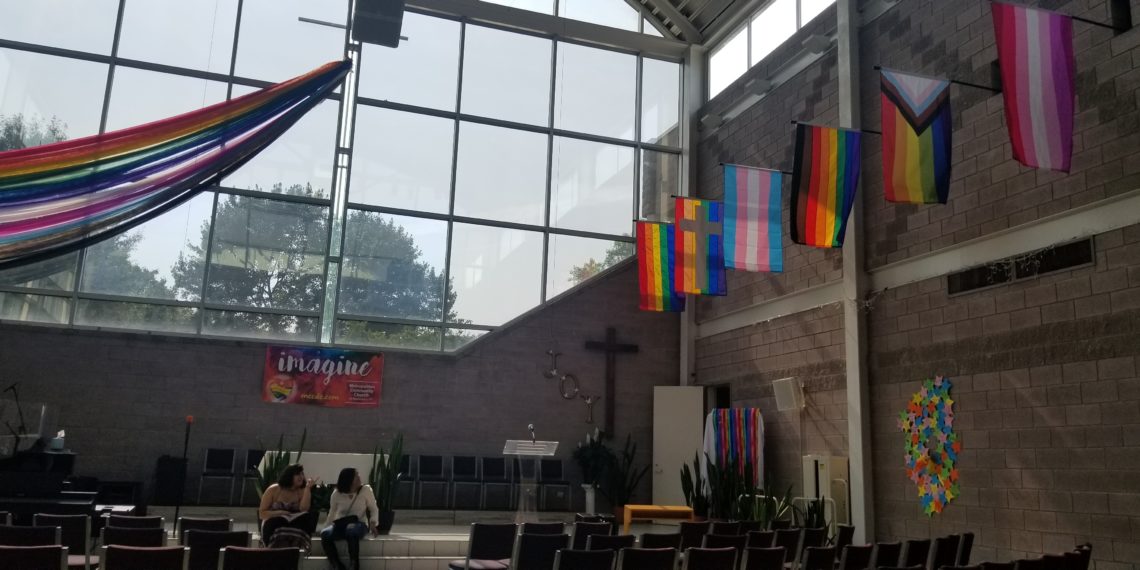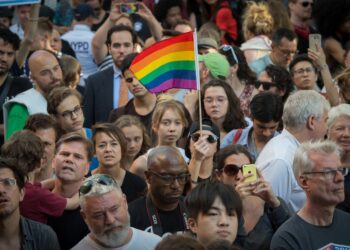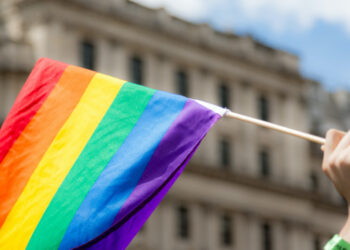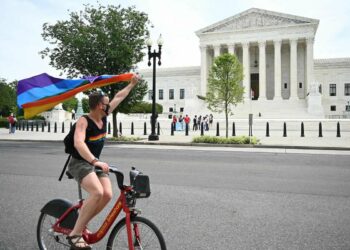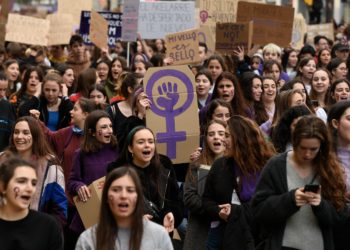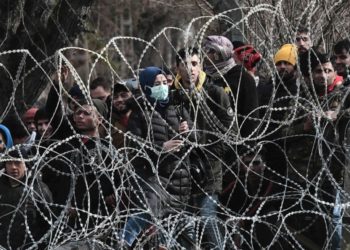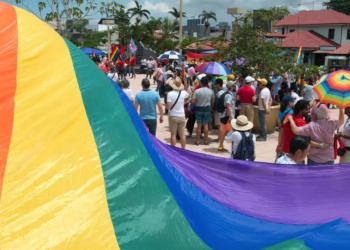The Capital Pride Alliance kicked off its celebration of the LGBTQ+ community, Capital Pride 2019, in Washington on Friday, and the party won’t stop until Sunday, June 9.
The annual celebration dates all the way back to its founding in 1975 when it was originally called Gay Pride Day and attracted a mere 2,000 people. Since then, Capital Pride has grown into a massive, weeklong gathering of more than 100,000 people every year.
Executive Director of the Capital Pride Alliance Ryan Bos told The Globe Post this year’s theme, “shhhOUT,” is meant to represent the history of being silent in the closet as well as those currently trying to silence the LGBTQ+ community in the present.
“Whether it be rolling back protections for the LGBTQ+ community and specifically the Trans community, these are the things we continuously fight,” he said.
Bos also pointed to other issues such as rising hate crimes, violence, and suicide rates as well as discrimination against the LGBT community in the workplace and the military.
“Those are all things that all of us coming together for pride and all of the communities around the country and the world are here to fight,” Bos said.
D.C. area artist and activist Xemiyulu Manibusan Tapepechul said all around the world black and indigenous trans women are dying the most.
“Just this month over 22 black and indigenous trans women have been murdered on the American continent alone, and that’s really tragic,” Tapepechul told The Globe Post.
Capital Pride Honors
The first event of the celebration, The Capital Pride Honors, was on Friday night at the Smithsonian American Art Museum at 7:30 p.m.
What a great night Washington, DC!!!!! Thank you to @BYT for a fantastic event! @smithsonian we couldn’t have done it without you
Thank you to our volunteers, and congrats to all our Honorees
follow us on @Snapchat for more behind the scenes! pic.twitter.com/3PqvDHtn3h
— Capital Pride (@CapitalPrideDC) June 1, 2019
Bos said the Capital Pride Alliance held the event to acknowledge those leaders in the LGBTQ+ community and beyond who have furthered the movement.
Tapepechul, who received the Engendered Spirits award during the Capital Pride Honors, said the event was “kinda tough” for her.
“Even though it was a celebration and it was meant to celebrate people like me specifically, I felt like I was tokenized because they didn’t bother to ask me how to pronounce my name,” Tapepechul said.
“When they went out to announce my award, they mispronounced my name several times. It just showed me how little effort went into ensuring that respect was given. Someone literally came up to me and said, ‘we’ve been practicing how to say your name, but we’re gonna butcher it.’”
Tapepechul said as one of the only trans women of color to win an award, she felt it was “really offensive” and said organizers of the Capital Pride Honors could have asked and practiced with her how to say her name.
“That energy for me just continued throughout the night and it was kinda difficult for me to shake it off,” Tapepechul said. “Besides that, there wasn’t like gender-inclusive bathrooms and so it just felt really performative, and I feel like a lot of pride events are like that.”
Metropolitan Community Church
Tapepechul attended an event for D.C. Latinx Pride the following evening at the Metropolitan Community Church where organizers served food and refreshments to members of the community. Founder of D.C. Latinx Pride Jose Gutierrez told The Globe Post organizing for the event began in January and that this was the 13th annual Latinx Pride in D.C.
“Latinx literally is a term that comes from the LGBT community,” Tapepechul said. “For me as an LGBT person that is also Latin American, it’s really important to separate Latinx from LGBT because Latinx is specifically meant to be inclusive of non-binary people.”
La Fe: Latinx LGBTQ & Stonewall this Sat, June 1 at 5pm at MCCDC. The Latino GLBT History Project and MCCDC invite you to a panel discussion of Latinx LGBTQ leaders discussing Stonewall, participation in parades, educational events, marches, protests, and immigration activities. pic.twitter.com/MiWN5aKwwV
— MCCDC (@MCC_DC) May 29, 2019
Tapepechul said pride events that do not center the Latinx community often lack interpreters for non-English speakers.
“That’s one main issue for the community because a lot of people that are in the area are recent migrants. They too deserve access to pride events and celebration of our identities. If we don’t have access for language, it becomes a barrier.”
Gutierrez praised the Metropolitan Community Church and said he was “really grateful and thankful” for Latinx Pride’s partnership with Reverends Dwayne Johnson and Cathy Alexander.
“It’s a safe space for Latinx and LGBTQ people, so we just want to celebrate the 13 years of the pride,” Gutierrez said.
The Metropolitan Community Church in D.C. was built with the LGBTQ+ community in mind. On one side, an imposing, windowless wall represents how those in the closet are walled off from the rest of society. The wall gives way to a massive, window extending all the way to the other wall adorned with several more windows that shine light into the venue. This represents the freedom of coming out and the transition from being broken to becoming whole.
In an email to The Globe Post following the event, Tapepechul said police came to the church after having been asked to leave earlier in the evening.
“I left the space shouting things like ‘no cops at Pride. Pride is a riot against police’ and then I got bombarded by some of the white cis male pastors of the church,” Tapepechul said. “They told me I overacted and was being violent…It was a traumatizing event for me and other Trans Native community members.”
The Globe Post contacted the Metropolitan Police Department, who said they had no record of any kind of dispute related to Latinx Pride.
Have you signed up to walk with @MayorBowser in this year's @CapitalPrideDC Parade! Register now: https://t.co/mHZarNcCzs pic.twitter.com/mKTWGI0Brp
— Mayor’s Office of LGBTQ Affairs #DistrictofPride (@DCLGBTQ) May 30, 2019
Volunteer
The Capital Pride Alliance is primarily a volunteer organization with a few staff, with 50 to 60 volunteers that work year-round and 300 or more who help during the festival, according to Bos.
“It takes a dedicated community that works year round,” he said. “This is a community festival, community parade, and community array of events and opportunities to truly spotlight our community.”
Bos said those interested in volunteering could go to capitalpride.org/volunteer and that there is a “slew” of volunteering opportunities available.


